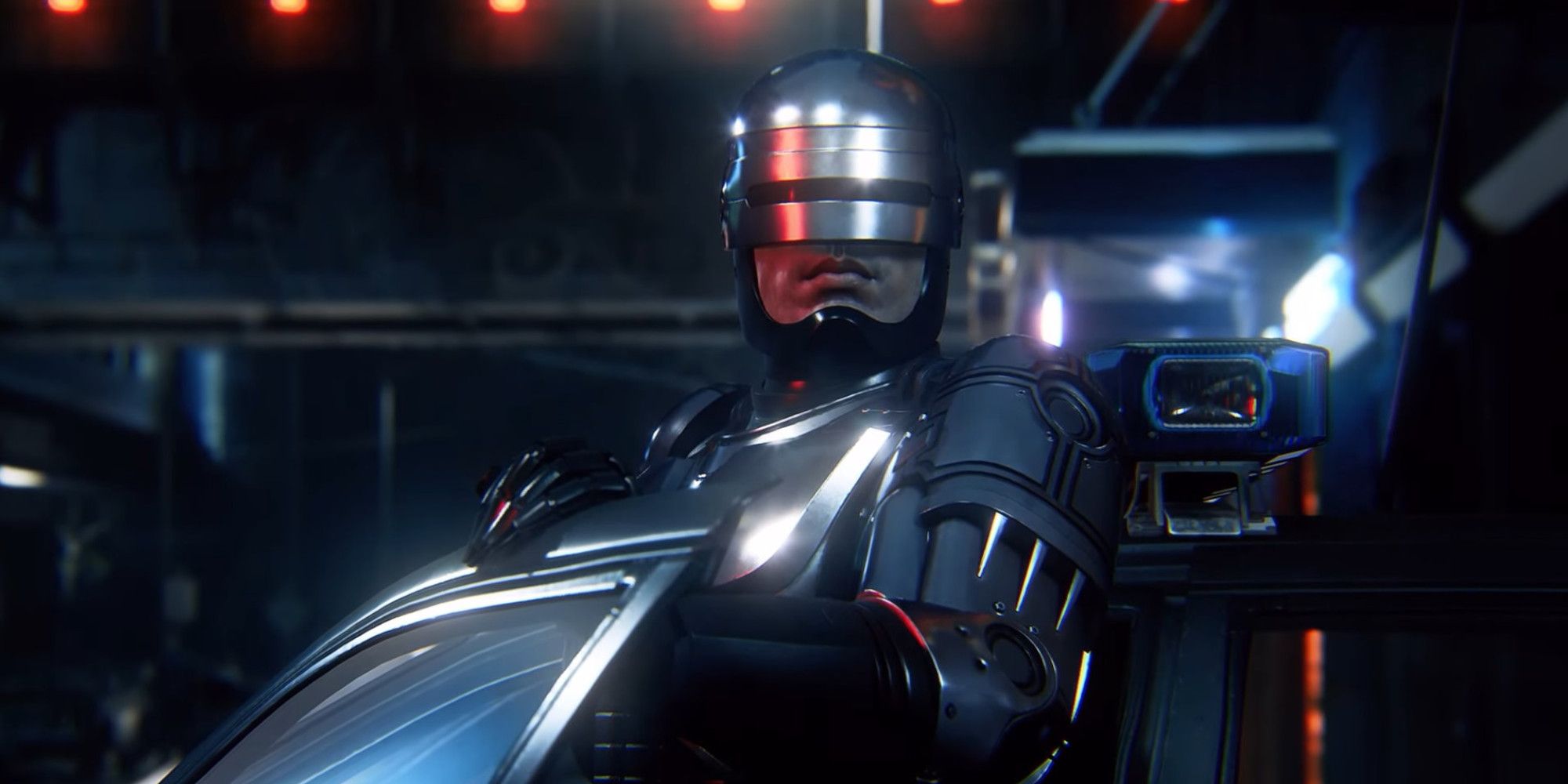I’ve seen a lot of hesitant comments about Nacon’s just-announced RoboCop: Rogue City. Some people are worried that the first-person combat won’t accurately represent the robotic motion RoboCop is known for. I’ve also seen concerns that RoboCop’s Auto-9 pistol doesn’t have film-accurate sound effects. While these worries sound fairly trivial, they both reflect a fear that Nacon’s game won’t accurately depict RoboCop. Rather than worry about the sound of his gun or the way he pivots his torso when he moves, we should be asking about RoboCop’s politics. Frankly, if Nacon isn’t prepared to tackle corporate privatization and the militarization of the police in America, then it has no business making a RoboCop game.
There’s nothing subtle about RoboCop’s politics. Like most dystopian cyberpunk stories, RoboCop depicts a futuristic world where deregulation and unrestricted capitalism has turned America into a corporatocracy. Vast wealth inequality and the privatization of social services like health care and law enforcement has turned Detroit into a violent, crime-ridden hellscape. There’s no mystery who the villains are or who is responsible for making things this way. Even the most surface-level reading of RoboCop will understand that the boardroom full of suits designing crime-stopping death machines are the real bad guys, and Boddicker and his gang are merely products of their hopeless environment.
But RoboCop isn’t just a critique of capitalism broadly, it was specifically made as a commentary of American life in the 1980s. The collapse of Detroit’s auto industry in the ‘60s led to economic ruin, irrevocable unemployment, and skyrocketing crime rates in the city. The decline of the American manufacturing industry in the ‘70s and ‘80s was a major source of anxiety for people at the time, and RoboCop is a reflection and extrapolation of those fears. Director Paul Verhoeven has said plainly that RoboCop’s militarized police are based on Texas’ justice system, where he saw criminals being condemned and executed without real due course. It’s also easy to read OCP conspiring with Boddicker’s gang as a metaphor for the Iran-Contra scandal, as Kieran Fisher has in his essay about the film. RoboCop is a film about corruption, greed, and the unfettered expansion of American corporate control over our government and public policy in the 1980s.
Of course, none of these issues were resolved then, and they’ve only gotten worse in the decades since. As automation becomes a pressing concern for the manufacturing, trucking, and service industries, warehouse and gig workers across the country are fighting exploitation from tech giants like Amazon and Uber. Rapid inflation onset by corporate greed and the desire to force low-income workers back into minimum-wage jobs has caused what will soon be the fourth recession in 20 years. Police departments have only become better funded and less accountable, and our politicians and leaders have only become more corrupt. A new adaptation of RoboCop must take all of these things into account, otherwise it’s just using the iconography without any of the meaning.
All we know about Nacon’s RoboCop comes from a short trailer and a description on the game’s Steam page. I recommend reading that description in its entirety:
“Become the iconic part man, part machine, all cop hero as you attempt to bring justice to the dangerous, crime-ridden streets of Old Detroit. Armed with your trusty Auto-9, factory-built strength, years of experience on the force and a variety of tools at your disposal, you will fight forces seeking to destroy the city you call home in an all new first-person, explosive hunt for the truth. You have the power to decide how to fulfill prime directives in your own way, but as the story unfolds proceed with caution because corruption and greed know no limits.”
This doesn’t inspire a lot of confidence that Nacon is prepared to tackle the multitude of socio-economic issues that define RoboCop. While the final line does at least allude to corruption and greed as major themes, the totality of the synopsis reads like full-throated endorsement of the neoliberal ideologies that RoboCop rallies against. I’m prepared, and hopeful, for a clever marketing misdirect, and I’d like to think the studio that gave us the underrated Terminator: Resistance has a better grasp on the source material than this description communicates. It won’t matter how good the gunplay is or how accurate the sound effects are if RoboCop: Rogue City doesn’t have anything to say.

